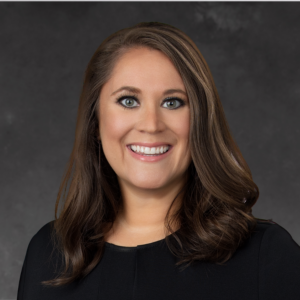
Presidential Elections: What Do They Mean for Markets?
It’s natural for investors to look for a connection between who wins the White House and which way stocks will go.


Are you saving for retirement? For many people, saving for retirement is simply signing up for our employer’s 401K, choosing a contribution percentage, and calling it a day.
While that’s a significant first step to saving for retirement, the truth is a vast majority of Americans aren’t saving enough for retirement, and certainly not for the actual lifestyle they’d like to live when they reach that stage.
This is the one single question that many people don’t consider. Putting money into a 401K or other retirement account doesn’t necessarily mean that you’ll have saved enough when you hit retirement age.
There are many factors to consider when you retire. By thinking about these things before you retire, even knowing they could change down the road, you’ll be better equipped to retire on your own terms.
Now that you’ve given thought to how you want to live in your retirement years, the question is, are you saving enough?
To accurately plan, gather how much you’ve already contributed towards your retirement, at what age you want to retire, and how much you want to have saved when you do. Then we can schedule a meeting to walk through a Financial Plan and put all of the pieces together.
Seeing those numbers in black and white can be humbling and overwhelming. Especially if you recognize that what you’ve been contributing towards retirement isn’t measuring up to how you want to live in retirement.
The good news is that there are more options and ways to achieve your goal than with your 401K, like real estate and other savings vehicles and investments to consider.
If you’re in a single income household with a partner, it’s essential to consider them in the equation. Women disproportionately don’t have retirement savings. This is primarily an issue for women who choose not to work outside of the home. While that’s a great choice, when making that decision as a family, ensure that you’re accounting for that in your retirement years, as well.
Interchangeably, if your family decides Dad will stay home or if you have a child with special needs, plan accordingly when saving for your retirement.
There are indeed a lot of competing priorities when it comes to saving. Emergency funds, homeownership, education, and everyday present needs and wants. So how do you do it all?
You do what you can with what you’ve got. However, when trying to decide on prioritizing savings, you should remember these two things:
Ready to set a goal and make a plan to retire on your own terms? Let’s set up a meeting to walk through your financial plan.
Please remember that past performance may not be indicative of future results. Different types of investments involve varying degrees of risk, and there can be no assurance that the future performance of any specific investment, investment strategy, or product (including the investments and/or investment strategies recommended or undertaken by Beaird Harris Wealth Management, LLC), or any non-investment related content, made reference to directly or indirectly in this blog will be profitable, equal any corresponding indicated historical performance level(s), be suitable for your portfolio or individual situation, or prove successful. Due to various factors, including changing market conditions and/or applicable laws, the content may no longer be reflective of current opinions or positions. Moreover, you should not assume that any discussion or information contained in this blog serves as the receipt of, or as a substitute for, personalized investment advice from Beaird Harris Wealth Management, LLC. To the extent that a reader has any questions regarding the applicability of any specific issue discussed above to his/her individual situation, he/she is encouraged to consult with the professional advisor of his/her choosing. Beaird Harris Wealth Management, LLC is neither a law firm nor a certified public accounting firm and no portion of the blog content should be construed as legal or accounting advice. A copy of the Beaird Harris Wealth Management, LLC’s current written disclosure statement discussing our advisory services and fees is available for review upon request.

It’s natural for investors to look for a connection between who wins the White House and which way stocks will go.

Beaird Harris is thrilled to announce that we have been ranked as No. 32 in CNBC’s annual list of “Top 100 Financial Advisory Firms of…

As you consider your year-end charitable giving strategies – whether you want to support your favorite qualified charity or make an annual gift to your…
Schedule a complimentary call today. We’ll help you get started and learn more about Beaird Harris.